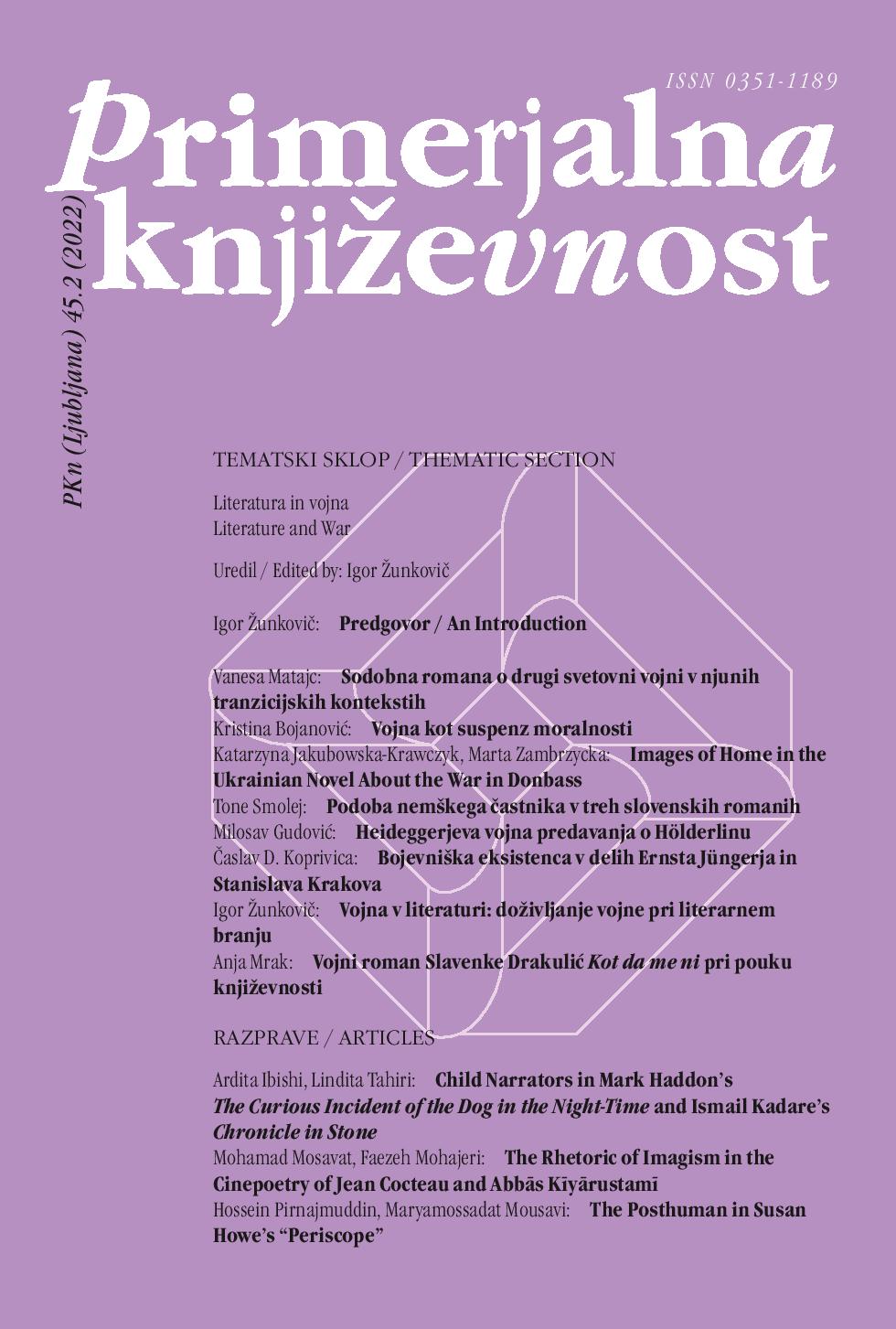How to Teach the Unimaginable: Slavenka Drakulić’s War Novel As if I Am Not There and Literature Teaching
DOI:
https://doi.org/10.3986/pkn.v45.i2.08Keywords:
literature and war, Drakulić, Slavenka: As if I Am Not There, war in Bosnia, trauma, rape, war crimes, literature teaching, ethical educationAbstract
The updated Slovenian high school Reader Branja 3 brings Slavenka Drakulić’s As If I Am Not There (Kao da me nema, 1999) into the high school literature classroom, a war novel that depicts unimaginable crimes against humanity, rape, national and religious hatred, and the indelible consequences of war. Addressing the trauma of violence and abuse is undoubtedly a pedagogical challenge, which is why it is particularly important to contextualize the novel appropriately in sociopolitical and historical terms and to convey the emotionally challenging subject matter, which is also fraught with immediate temporal and geographical proximity, in an appropriately sensitive manner. I explore the possibilities of using the reading of a trauma narrative to pursue the broader goals of teaching literature, namely, teaching ethics through literature, and highlight key issues in discussing such texts in the classroom. In addition to the two excerpts presented in the Reader, I analyze the accompanying didactic content (explanations, questions, information about the author) that guides students’ interpretation of the novel.
References
Ambrož, Darinka, idr. <em>Branja 3: berilo in učbenik za 3. letnik gimnazij ter štiriletnih strokovnih šol</em>. Ljubljana: DZS, 2019.
Askin, Kelly D. »Prosecuting Wartime Rape and Other Gender-Related Crimes Under International Law: Extraordinary Advances, Enduring Obstacles«. <em>Berkeley Journal of International Law</em> 21.2 (2003): 288–349.
Berber, Neval. »Writing the Rape in Post-Conflict Societies of the 1990s: John M. Coetzee and Slavenka Drakulić«. <em>Critique: Studies in Contemporary Fiction</em> 59.1 (2018): 103–114.
Drakulić, Slavenka. <em>Kot da me ni</em>. Prev. Sanja Polanc. Ljubljana: Center za slovensko književnost, 2002.
Grosz, Elizabeth A. <em>Neulovljiva telesa: h korporealnemu feminizmu</em>. Prev. Tanja Velagić. Ljubljana: Zavod Emanat, 2008.
Krakar Vogel, Boža. <em>Didaktika književnosti pri pouku slovenščine</em>. Ljubljana: Rokus Klett, 2020.
Matajc, Vanesa. »Medbesedilna razmerja med ustno zgodovino in literaturo v pričevanju«. <em>Acta Histriae</em> 19.1–2 (2011): 301–318.
Schönfelder, Christa. <em>Wounds and Words: Childhood and Family Trauma in Romantic and Postmodern Fiction</em>. Bielefeld: Transcript, 2013.
Valanzola, Ashley. »Student Disclosure: The Aftermath of Teaching About Sexual Violence in the Classroom«. <em>Review of Education, Pedagogy, and Cultural Studies</em> 43.2 (2021): 185–203.
Virk, Tomo. »Literatura, etika in pouk književnosti v gimnazijah«. <em>Jezik in slovstvo</em> 64.1 (2019): 65–72.
Yuval-Davis, Nira. <em>Spol in nacija</em>. Prev. Polona Petek. Ljubljana: Sophia, 2009.
Žarkov, Dubravka. <em>The Body of War: Media, Ethnicity, and Gender in the Break-up of Yugoslavia</em>. Durham, NC; London: Duke University Press, 2007.


